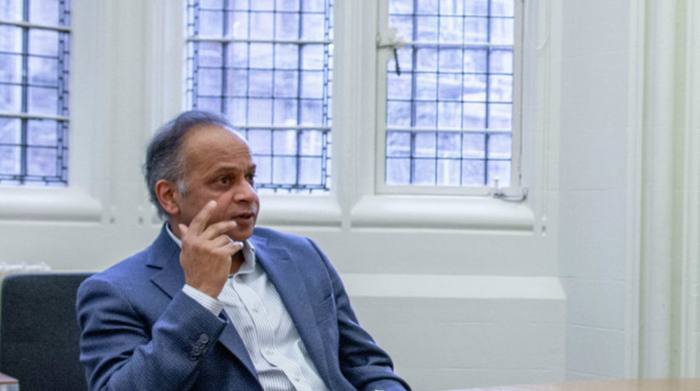University has the power to help resolve marking boycott, says UCU rep
According to Cambridge UCU President, a public statement by the University could lead national employers to re-enter negotiations

A public statement from the University of Cambridge, calling for employers to settle the ongoing pay dispute, would be a major step towards minimising exam and graduation disruption, Cambridge UCU President Michael Abberton has claimed in an interview with Varsity.
Earlier this week, Cambridge voted down “emergency measures” designed to minimise the marking boycott’s impact. Now, there are two potential outcomes: either there will be major disruptions to graduations, or negotiations will restart on the dispute behind the boycott.
The industrial dispute is over pay and working conditions. The University and College Union (UCU), whose action comes under a national strike mandate, are lined up against the national-level employers’ representative, the UCEA. As it stands, the UCEA has refused to re-enter negotiations with the UCU.
The university’s senior administrative team have been meeting with the University and College Union (UCU) every day this week, in attempts to come to an agreement on how to approach the situation.
The University cannot directly negotiate with staff given the national nature of the dispute with the UCEA. However, Abberton said that Cambridge’s senior management “have immense influence” and can “affect the dispute nationally”.
Abberton cites the precedent of Cambridge’s past action on other industrial disputes as an example of how the university “has influence, although they may try to play it down, strong enough to break through these kinds of situations”.
In 2021, staff were also striking over pensions. Cambridge issued a joint statement with the UCU, asking the employers’ representative Universities UK to negotiate. The University also undertook an independent valuation of the national USS pensions scheme, which determined that restoring pension benefits was financially viable. Earlier this year, Universities UK made concessions to the UCU, which academics and staff voted to move forward with.
“Other universities are just waiting. If Cambridge makes the move, they will be joined”, Abberton said, arguing that the University is well placed to build pressure on the UCEA “to come back to the table”.
If a “sufficiently realistic” offer were tabled, Abberton claimed that “the national executive of the union could suspend the action”, and marking and graduations would go ahead.
However, the Cambridge UCU President stressed the need for quick action from the University in a joint statement: “we’re so close now to running out of time”, he stated, “we are against the clock. If we are going to make sure that students can graduate this year, then we have a very short window to act”.
Discussing the new student #SettletheDispute campaign, Abberton expressed his “complete support”, and stressed the effectiveness of students’ attempts to put pressure on the University.
 News / Uni Scout and Guide Club affirms trans inclusion 12 December 2025
News / Uni Scout and Guide Club affirms trans inclusion 12 December 2025 News / Cambridge study finds students learn better with notes than AI13 December 2025
News / Cambridge study finds students learn better with notes than AI13 December 2025 News / Cambridge Vet School gets lifeline year to stay accredited28 November 2025
News / Cambridge Vet School gets lifeline year to stay accredited28 November 2025 Science / Did your ex trip on King’s Parade? The science behind the ‘ick’12 December 2025
Science / Did your ex trip on King’s Parade? The science behind the ‘ick’12 December 2025 News / Pembroke to convert listed office building into accom9 December 2025
News / Pembroke to convert listed office building into accom9 December 2025










